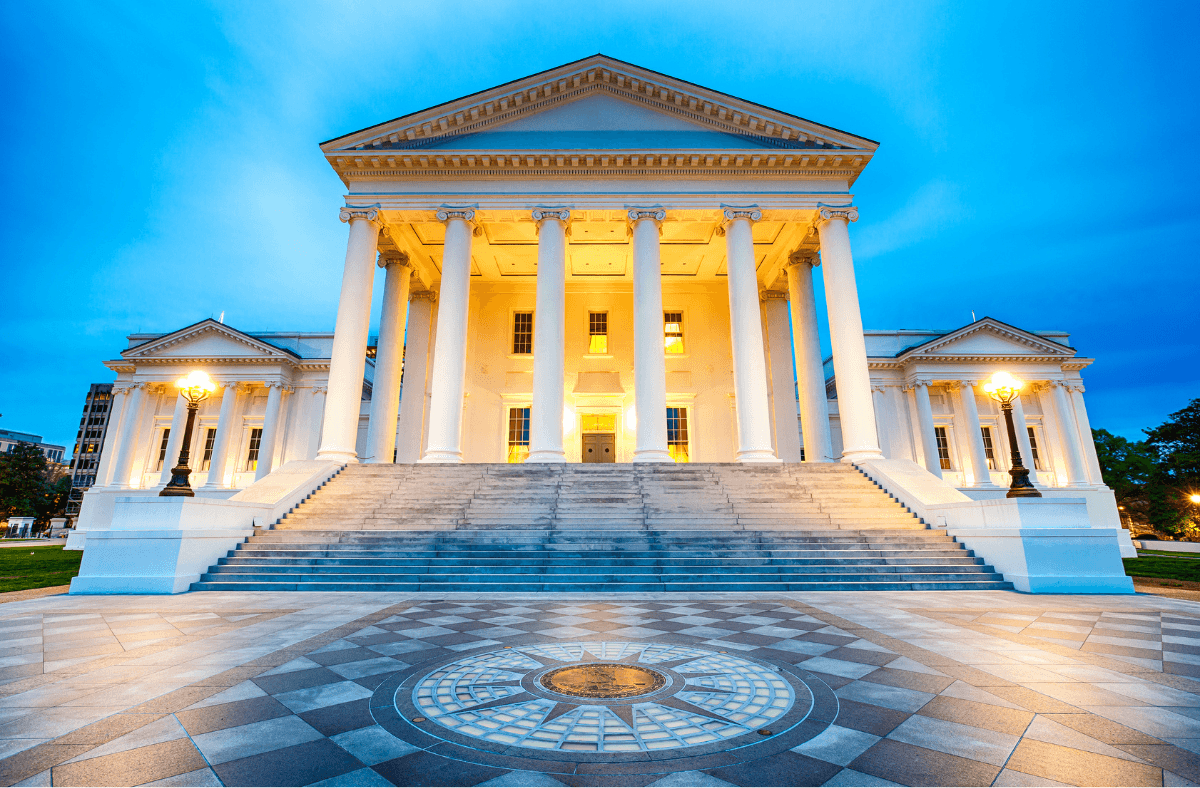
After weeks of advocacy efforts dating back to late January, DBIA was successful in getting significant amendments incorporated into Virginia Senate Bill 18 (SB 18) and Virginia House Bill 1108 (HB 1108). The bills initially aimed to drive project selection purely based on price, potentially hindering the use of design-build and Construction Manager at Risk (CMAR) project delivery methods. These bills proposed restrictions that would have made it challenging for Owners to use design-build and introduced more bureaucratic hurdles.
As introduced at the start of 2024, SB 18 and SB 1054 sought to drive all project selection down to price, effectively turning Virginia into a low-bid state –– even for design-build projects. Initially, the bills did not allow any consideration of experience for design-build and CMAR projects, despite research and DBIA’s Best Practices showing experience is a key factor in project success.
DBIA immediately went to work to create amendments to these bills, meeting with legislators and stakeholder groups, including trade associations, cities, counties and Owner groups. The amendments put forth by DBIA –– and backed by stakeholders –– ensured consideration of experience on comparable projects of similar complexity and size was incorporated into the final legislation, marking a crucial victory for design-build in Virginia.
Challenges and Opposition
One of the primary reasons for opposition to considering experience was the concern that it would be harder for firms without design-build projects already in their portfolio to break into design-build project delivery. With design-build and CMAR projects on the rise and design/bid/build on the decline, larger contractors were worried about not being able to get awarded these projects.
However, there was no evidence to back up this claim.
Additionally, at the opening of this year’s session, nearly one-third of the Virginia state legislature comprised new representatives. Not only does a large swath of new legislators mean delegates may not be familiar with design-build or DBIA, but it means new positions on the issues and fewer existing relationships on which to build support for the proposed amendments.
Tracking 2024 Design-Build Legislation in Virginia
DBIA worked hard in Richmond to get to know the new legislators and garner their support for the amendments in SB 18 and HB 1108. When SB 18 was introduced in the Senate, it restricted the use of design-build and threatened to codify provisions that are contrary to DBIA Best Practices. Unable to make meaningful changes on SB 18, DBIA turned its attention to HB 1108 where successful amendments were eventually incorporated, allowing for some consideration of prior experience of comparable projects.
Since the language between the House and Senate bills were not identical, a conference committee was convened in an attempt to resolve the language discrepancies. A successful resolution was reached that allowed SB 18 and HB 1108 to pass with identical language.
The new language allows state public bodies and public institutions of higher education to consider the experience of each contractor on comparable projects of similar complexity and size, and local governments may consider the experience of each contractor on comparable construction management or design-build projects. These provisions ensure a fair selection process that considers the expertise needed for successful design-build project delivery.
The final bills now await the signature of Virginia Governor Glenn Youngkin.
Looking Ahead
DBIA is pleased with the outcome of this legislative effort, but this is not the last challenge of its kind. Not only in Virginia but across the United States, education and advocacy efforts will be crucial in ensuring the benefits of design-build are understood and appreciated in future legislative sessions.
DBIA Director of State/Local Legislative Affairs Richard Thomas explained the importance of getting ahead of potential legislation that could limit or prohibit design-build. “Legislators are regular people with a lot on their plates. They come from backgrounds that may or may not have familiarity with procurement, and they come into their elected offices with bills coming at them from all directions. It’s important for DBIA to talk to them, to get to know them, to open up the opportunity for more productive conversations with them when future bills are introduced that need our action.”
This success in Virginia presents opportunities for DBIA to continue advocating for fair and effective project delivery methods across the country. When asked what those future bills might focus on, Thomas mentioned progressive design-build as a potential angle, given the record number of PDB bills from 2023. He also suggested that passed bills are not infinitely safe, citing sunset clauses on a number of successful design-build laws.
These Virginia bills are a case study in DBIA’s vigilance to ensuring that design-build remains a viable and available option for public projects. DBIA continues to monitor legislation across the country to protect the interests of the design-build community.

